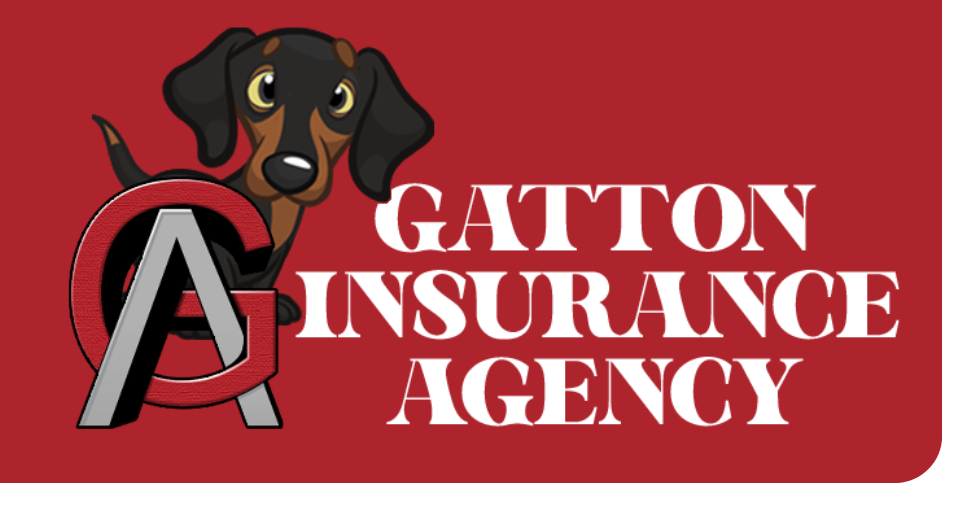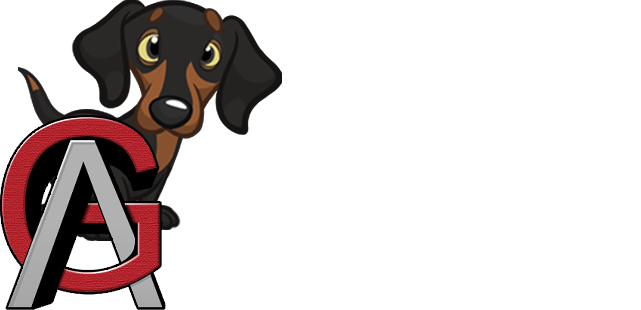Understanding Homeowners Insurance in Indiana
Homeowners insurance is a vital element for safeguarding properties and providing peace of mind to residents in Indiana. This type of insurance policy typically covers not only the physical structure of a home but also the personal belongings contained within it, liability protection, and additional living expenses in case the home becomes uninhabitable due to a covered incident. Protecting one’s investment through homeowners insurance is essential for homeowners as it mitigates financial risks associated with unexpected damages or losses.
In Indiana, homeowners insurance policies are structured to include several basic components. The most fundamental coverage is the dwelling coverage, which ensures the costs of repairing or rebuilding the home are covered in the event of damage from events like fire, lightning, or windstorm. Personal property coverage is another crucial aspect; this protects the homeowner’s belongings, such as furniture and appliances, from theft or damage. Liability coverage is equally important as it helps protect homeowners against lawsuits stemming from accidents that may occur on their property.
Understanding the intricacies of homeowners insurance policies in Indiana is critical for making informed decisions. Premiums can vary based on several factors, including location, the type and age of the home, and the coverage amounts chosen. For instance, homes in areas prone to certain natural disasters may face higher rates due to the increased risk. Homeowners also have the option to customize their policies to include additional protections, such as endorsements for specific valuables or additional liability coverage. The Gaton Agency can assist Indiana homeowners in navigating policy options to find the best coverage that meets their specific needs.
Natural Disasters and Weather-Related Claims
Indiana’s diverse climate is marked by various weather-related phenomena that significantly impact homeowners insurance rates. The state experiences severe thunderstorms, tornadoes, and flooding, leading to an increased frequency of claims that in turn drive up insurance premiums. These natural disasters can cause extensive property damage, resulting in the necessity for homeowners to file claims, which can influence the risk assessment by insurers such as The Gatton Agency.
Th thunderstorms are especially common in the warmer months and can produce high winds, hail, and heavy rain, contributing to structural damage and water intrusion in homes. Tornadoes, although less frequent, can be devastating when they do occur, leading to catastrophic destruction and requiring substantial repair costs. This unpredictability of catastrophic events means that insurers must anticipate the associated risks, prompting them to adjust their rates accordingly to maintain financial stability amidst rising claims.
Moreover, flooding, often exacerbated by heavy rain, can lead to significant damage to basements and lower levels of homes, making it a prevalent concern for homeowners in Indiana. The consequences of these weather-related events not only have immediate physical repercussions but also long-term financial impacts. As claims increase, so do the costs of doing business for insurance providers, including The Gatton Agency. Consequently, homeowners may find themselves facing an increase in their insurance premiums as companies reassess the risk landscape in the aftermath of natural disasters.
In essence, the implications of Indiana’s weather patterns extend beyond immediate property damage, influencing the broader insurance market. It is vital for homeowners to be aware of these factors when evaluating their insurance options, as they may need to adjust their coverage or seek additional protections in light of the changing climate and its effects on insurance rates.
Inflation and Rising Replacement Costs
Inflation is a significant economic factor that impacts various sectors, including the construction and insurance industries. In Indiana, as in many states, rising inflation leads to increased costs for building materials and labor. Homeowners seeking to rebuild or repair their homes face higher prices for essential resources such as lumber, roofing, and siding. Consequently, these escalating replacement costs can have a direct influence on the homeowners insurance market. Insurance companies must adapt to these changes to ensure their policyholders maintain adequate coverage.
As construction prices rise, insurers are compelled to reevaluate the costs associated with home replacements. This evaluation often results in an increase in premiums. When insurance firms assess their financial risks, they must consider the amount required to replace a damaged or destroyed home at current market rates. This adjustment may result in Indiana homeowners experiencing higher insurance premiums. Additionally, labor costs can see considerable fluctuation due to inflation, further complicating the financial landscape for both insurers and homeowners.
Moreover, inflation influences the overall demand for construction services. Increased demand can lead to shortages in materials and labor, which further exacerbates the issue. For instance, if a natural disaster occurs, the simultaneous demand for repairs across multiple homes can strain available resources, impacting costs even more. As a result, insurance providers, like The Gatton Agency, must adjust their rates accordingly. This dynamic ensures that they can adequately support repairs and replacement in the event of a loss, safeguarding both the business and homeowners in Indiana.
Ultimately, the relationship between inflation, rising replacement costs, and homeowners insurance rates underscores the need for homeowners to frequently review their policies. Staying informed about potential adjustments will help ensure they are adequately covered in an ever-changing environment.
Changes in Local Regulations and Legislation
The landscape of homeowners insurance in Indiana is often influenced by local regulations and legislative updates. Homeowners must stay vigilant about changes in laws that can directly impact insurance rates. For instance, modifications to building codes can lead to increased costs for insurance providers. When local governments enforce stricter building codes, it usually necessitates higher compliance costs for homeowners. This may include upgrade requirements for electrical systems, plumbing, and structural reinforcements that enhance the safety and durability of homes. Consequently, as the construction costs rise, insurance providers might adjust premiums to offset these increased expenses.
Zoning laws can also play a significant role in shaping the homeowners insurance arena. Changes in zoning can lead to developments in areas susceptible to risks such as flooding or fire hazards. If a local government allows development in a high-risk area, insurance companies may reassess their risk exposure and raise premiums accordingly. Environmental protection regulations can further impact costs, as insurance providers need to account for potential liabilities related to environmental damage or climate-related events. Adjustments in insurance policies to adhere to new regulations can result in higher premiums for Indiana homeowners.
Additionally, legislative measures regarding disaster response preparedness may compel insurance providers to evaluate their risk models more stringently. For example, if Indiana enacts laws that mandate improved disaster response facilities or services, the financial implications can trickle down to residents through increased insurance rates. The Gatton Agency, a prominent provider of insurance in Indiana, can guide homeowners through these changes, helping them understand how local laws impact their specific insurance premiums. Keeping an eye on local regulations and legislation is essential for homeowners to effectively navigate the evolving insurance landscape.
Neighborhood Risk Factors and Crime Rates
The impact of neighborhood risk factors and crime rates on homeowners insurance premiums in Indiana is a significant consideration for both insurers and homeowners. Insurance companies evaluate various metrics to determine the risk associated with insuring a property, utilizing historical data and local statistics. Communities characterized by higher crime rates often experience increased insurance costs, as these risks are factored into the overall premium. Insurers recognize that properties within areas with elevated crime present a greater likelihood of claims related to theft, vandalism, or other damages that can arise from criminal activity.
When assessing these factors, insurance providers often refer to comprehensive crime reports detailing the frequency and types of incidents occurring in specific neighborhoods across Indiana. For instance, areas with a notable incidence of property crimes may prompt insurers to impose steeper premiums to mitigate potential losses. This correlation underscores the significance of understanding local crime trends when selecting a neighborhood in which to purchase a home. In contrast, regions with low crime rates typically benefit from reduced premiums, offering homeowners more affordable options for securing their property against unforeseen unfortunate circumstances.
Furthermore, neighborhood characteristics — such as community reviews, local governance, and social stability — also play a role in how insurance companies assess risk. Clients of The Gatton Agency can gain insight into how these factors can affect their insurance landscape. Homeowners who prioritize safety and community vigilance may find ways to mitigate risk through neighborhood watch programs or engaging in local initiatives aimed at reducing crime. Engaging with authorities to understand crime trends can empower homeowners in Indiana to make informed choices regarding their home insurance policies, potentially leading to lower rates that reflect a reduced risk profile.
Home Maintenance and Property Upkeep
The condition of a home plays a crucial role in determining insurance rates for Indiana homeowners. Regular maintenance is essential as it helps identify potential issues before they escalate into significant problems that may require costly repairs. Homeowners who neglect upkeep often face higher insurance premiums, as insurers assess the risk posed by a poorly maintained property. Common issues such as outdated wiring, plumbing, or roofing can lead to severe consequences, including increased likelihood of damage claims, which in turn influences premium rates.
For instance, outdated electrical systems can be a fire hazard, leading insurers to raise rates due to heightened risk. Similarly, aging plumbing may result in leaks and water damage, prompting homeowners to file claims that could otherwise be avoided through regular inspections and timely repairs. By conducting routine maintenance, homeowners can not only preserve the integrity of their property but also potentially lower their insurance expenses.
Homeowners should prioritize a comprehensive maintenance plan that includes seasonal inspections, routine cleaning, and timely repairs. This may involve checking roofs for missing shingles, ensuring gutters are debris-free, and inspecting heating and cooling systems for efficiency. Additionally, upgrading outdated features, such as replacing old wiring or plumbing, can significantly enhance safety and reduce the risk associated with homeownership. Insurers like The Gatton Agency recognize that proactively addressing these issues translates to lower risks, thereby encouraging policyholders to maintain their properties effectively.
In conclusion, regular home maintenance can have a profound impact on homeowner’s insurance rates in Indiana. By investing time and resources into property upkeep, homeowners not only create a safer living environment but also maintain more favorable insurance costs. Staying ahead of potential issues ultimately leads to a more sustainable approach to managing home insurance and its associated expenses.
Insurance Claims History and Premium Adjustments
The insurance claims history of a homeowner is a critical factor that directly influences their insurance premiums. In Indiana, many insurance providers, including The Gatton Agency, assess the risk associated with insuring a property based on the number and types of claims a homeowner has made in the past. When a homeowner files multiple claims, even for minor issues, it can signal to insurers that the property may be at a higher risk of future claims, ultimately leading to increased premiums.
Insurance companies operate on the principle of risk assessment; they evaluate various elements, including claims frequency, to determine the likelihood of a homeowner making future claims. A homeowner with a history of frequent claims, whether they pertain to weather-related damages, theft, or liability issues, may be perceived as a higher risk by insurers. This can result in premium adjustments to account for that perceived risk, as insurers seek to protect their financial interests. For example, if a homeowner has made multiple claims for water damage, insurers might conclude that the property is susceptible to similar issues in the future, hence prompting a rate increase.
Moreover, it is essential for homeowners to understand that some types of claims may have a more significant impact on their premiums than others. Catastrophic claims, such as those related to fire or major flooding, might lead to more substantial increases, compared to smaller claims like broken fences or theft of minor personal property. The overall claims history becomes a vital part of the homeowner’s insurance profile, affecting not only premium costs but also the availability of certain policy options. With the right management of insurance claims and a proactive approach to home safety, homeowners in Indiana may be able to mitigate the impact of their claims history on insurance rates.
The Impact of Credit Scores on Insurance Rates
In Indiana, homeowners insurance rates can fluctuate based on various factors, one of the most significant being the property owner’s credit score. Insurance companies, including The Gatton Agency, utilize credit information to gauge the risk associated with providing coverage. This practice stems from research indicating a strong correlation between an individual’s creditworthiness and the likelihood of filing a claim. Generally, individuals who maintain higher credit scores are perceived as lower risk, leading to more favorable insurance premiums.
When evaluating applications for homeowners insurance in Indiana, insurers analyze credit reports alongside other factors such as the individuals’ claims history and the property’s overall risk profile. Those with lower credit scores often experience higher premiums. This tendency arises because insurers believe that lower credit scores indicate a greater likelihood of claims, which in turn affects the insurer’s profitability. As a result, homeowners in Indiana might find themselves facing increased rates if their credit scores dip.
Furthermore, it’s important to note that credit scores are not the sole determinant of insurance rates. Insurers consider multiple aspects while calculating premiums, including the location of the property, its age, and additional coverage options selected by the homeowner. Nevertheless, maintaining a good credit score can significantly impact the affordability of insurance policies. Homeowners in Indiana should monitor their credit regularly and adopt practices aimed at improving it, such as timely bill payments and reducing outstanding debts. Investing in one’s credit health can lead to better financial outcomes and possibly lower insurance premiums with companies like The Gatton Agency.
Tips for Homeowners to Manage and Reduce Insurance Costs
Managing and reducing insurance costs is a priority for many Indiana homeowners, particularly in light of rising rates. There are several effective strategies that can help homeowners alleviate their financial burden while ensuring adequate coverage. One of the most practical approaches is to bundle insurance policies. By combining home and auto insurance or other types of policies with the same provider, homeowners can often benefit from significant discounts. The Gatton Agency, for instance, frequently offers special rates for bundled service packages in Indiana, allowing clients to save on their overall premiums.
Another key method to consider is increasing deductibles. A higher deductible can lead to lower monthly premium payments. However, it is essential to ensure that homeowners can comfortably cover the deductible in the event of a claim. While this option may not be suitable for everyone, it can be particularly useful for those who have a solid emergency fund and prefer lower insurance costs.
Enhancing home security features is another effective way to reduce insurance rates. Installing security systems, deadbolts, and smoke detectors can not only protect one’s home from theft and fire but also attract discounts from insurance companies. Insurers often acknowledge that homes with improved security measures are less likely to be involved in claims, thus making them less risky to insure.
Lastly, maintaining a good credit score is critical in managing insurance costs. Insurers frequently use credit scores to assess risk and determine premiums. Indiana homeowners should regularly review their credit reports for accuracy and work to address any discrepancies. Paying bills on time and reducing debt can contribute to a positive credit history, ultimately leading to potential reductions in insurance costs. By employing these strategies, homeowners can not only manage but potentially reduce their insurance expenses significantly.






